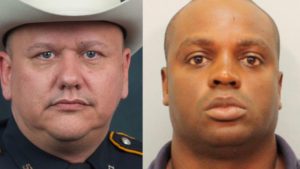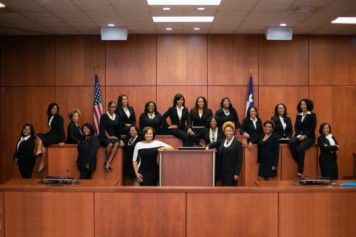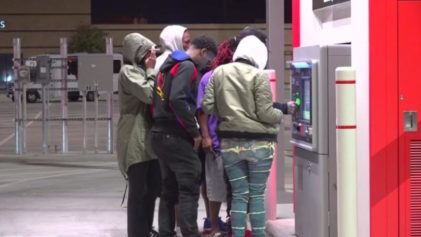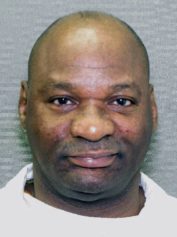
Harris County Deputy Sheriff Daren Goforth and Shannon J. Miles. Credit: Harris County Sheriff’s Office via AP.
Law enforcement are attempting to make connections between the the black struggle movement and the ambush-style killing of a Texas sheriff’s deputy, suggesting the Black protest movement is creating a hostile climate for police officers. The evidence, however, does not suggest this is the case, but rather that police are attempting once again to change the subject on the issue of racial injustice.
On Monday, Shannon J. Miles, 30, was arraigned on the charge of capital murder in the death of Harris County Deputy Sheriff Darren Goforth. On Friday, Goforth was pumping gas into his police car when a man, allegedly Miles, came from behind and shot the deputy 15 times, emptying his gun, according to prosecutors.
In 2012, Miles was found mentally incompetent to stand trial over a felony assault charge. The man allegedly kicked and punched a victim during a fight in an Austin homeless shelter over a television remote control.
President Obama called the widow of the officer to offer condolences, and in a statement he called for support of police families.
“I also promised that I would continue to highlight the uncommon bravery that police officers show in our communities every single day. They put their lives on the line for our safety,” Obama said in a statement. “Targeting police officers is completely unacceptable — an affront to civilized society.”
“This rhetoric has gotten out of control,” said Harris County, Texas, Sheriff Ron Hickman, as reported by CNN. “We’ve heard ‘black lives matter,’ ‘All lives matter.’ Well, cops’ lives matter, too. So why don’t we just drop the qualifier, and just say ‘Lives matter,’ and take that to the bank?”
Law enforcement are making renewed calls to link #BlackLivesMatter to the killing of police officers. The present circumstances harken back to the December 2014 ambush of two New York City police officers, who were shot execution-style while sitting in their patrol car. The incident led to police scrutiny of Black protests, including a declaration of war on protesters and the Black community by New York Patrolmen’s Benevolent Association President Patrick Lynch, and a proposal by NYPD Commssioner Bill Bratton to make resisting arrest a felony.
“In the last few years, ambush attacks aimed to kill or injure law enforcement officers have risen dramatically,” said Chuck Canterbury, national president of the Fraternal Order of Police, in a statement. “They were killed because their murderers had one purpose—to kill a cop.”
Canterbury said 23 officers have been killed by gunfire this year, three of them because they were officers. In 2014, nine police officers were killed by ambush. Critics of Black activism cite a recent protest in Minnesota, in which demonstrators held a banner reading “Black Lives Matter” and chanted “Pigs in a blanket! Fry ’em like bacon!”
Such critics create a false equivalence between the current shootings of cops and armed and trained police officers who use the authority of the state to gun down unarmed Black people. Further, in the process, these critics attempt to redirect from the main issue, which is that white supremacy in all of its forms is alive and well. Racial discrimination and implicit and explicit racial bias remain a constant threat to Black bodies, and the power structure refuses to divest itself of the tools of its oppression, which is what a new generation of Black protesters seek to eliminate in the first place.
In addition, while the job of law enforcement comes with inherent risk, the number of police killings has declined in recent decades. The data suggest that policing has become a much safer profession, as the Washington Post reports. Although the number of officers killed in 2014—51—nearly doubled over the previous year, this is a dramatic drop of over half when compared to prior decades. In 2013, 27 officers were killed in the line of duty, the fewest officers killed since 1980.


